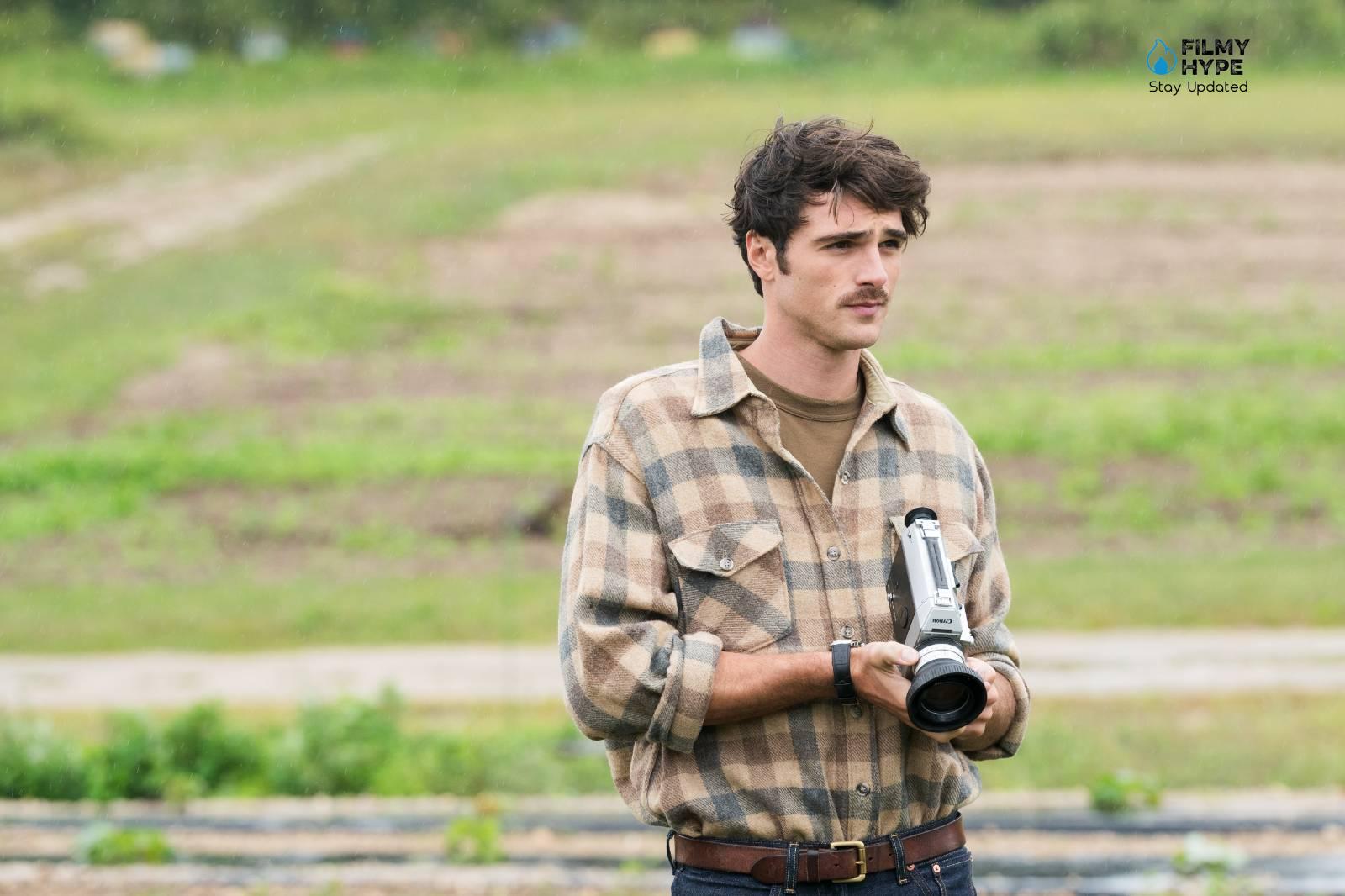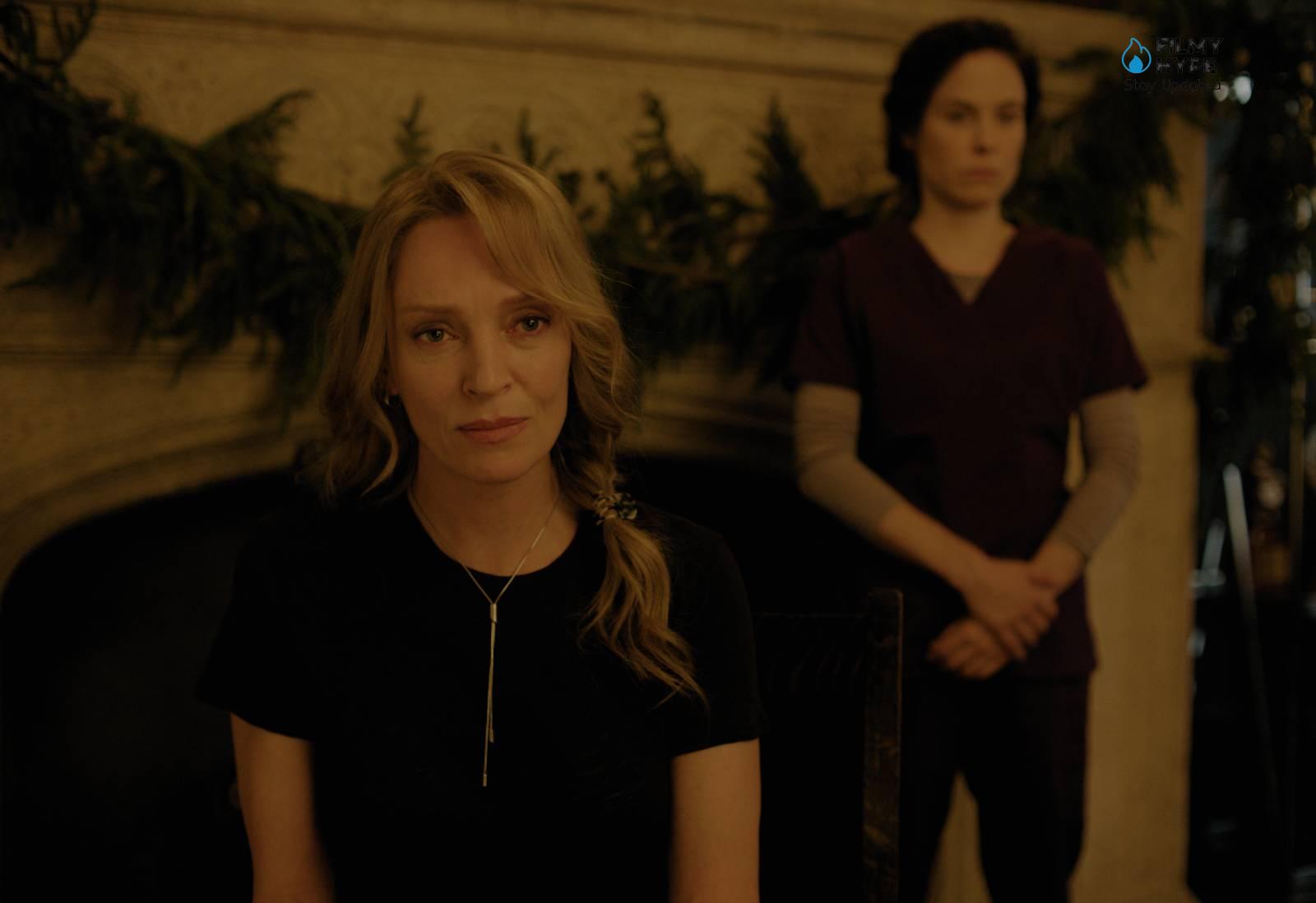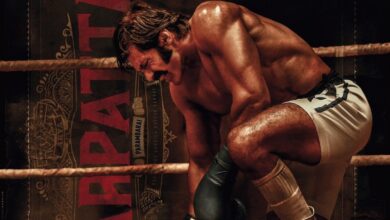Oh Canada Review: Paul Schrader’s Great Journey Into Ambiguity | Cannes 2024
Cast: Richard Gere, Uma Thurman, Jacob Elordi
Director: Paul Schrader
Where we Watched: At the Cannes Film Festival
Filmyhype.com Ratings: 3.5/5 (three and a half stars)
Paul Schrader with Oh, Canada, shot in just 17 days, competes at Cannes 2024, after two years ago in Venice with The Master Gardener he put an end to his beautiful trilogy on accidents. Based on the novel of the same name by Russell Banks, who passed away last January, the film presents itself as a journey into the concept of truth in a personal and universal sense. It also becomes an analysis of the relationship between artist and work, life and cinematographic art, and how much the camera can give the certainty, or the illusion, of a truth at hand, exposing only a part of our soul. Among the most anticipated titles of this seventy-seventh edition of the Cannes Film Festival, there is also Oh, Canada, a work directed by Paul Schrader and based on the novel by Russell Banks.

Suppose on paper it is a fascinating story – a famous dying director decides to participate in a documentary/confessional about himself, telling his past – on the screen. In that case, it lacks something extra to make the film by the director of Taxi Driver and the truly convincing master gardener. The narrative structure chosen, with Chinese boxes and with actors who exchange playing the same role, relying on the “no longer reliable” mind of a dying man, is decidedly interesting but ends up getting lost in its plot, failing to find that depth emotion that would really make a difference. As we will see in this review of Oh, Canada, the film brings back to the screen an actor of the caliber of Richard Gere in the title role, a documentary filmmaker who fled to Canada to avoid being drafted into the Vietnam War. From his deathbed he retraces his past, revealing secrets that not even his beloved wife Emma (played by the splendid Uma Thurman) was aware of.
Oh Canada Review: The Story Plot
For Leo Fife (Richard Gere in the present, Jacob Elordi in the past) one of the most celebrated and appreciated documentary directors of all time, life is now coming to an end. Cancer is taking him away, making him the ghost of the man he was and that’s why he accepted the offer of his former students Malcolm (Michale Imperioli) and Diana (Victoria Hill). They want to record a final confession from him, allow him to create a personal will, to tell the whole truth and nothing but the truth, about his life and work. Leo’s wife, Emma (Uma Thurman) is doubtful about the result of the operation, but Leo is adamant, also because he knows he hasn’t told everything about his past, that of a confused ex-boyfriend from the provinces of the late ’60s, who fled to Canada to escape the Vietnam draft. There he became a cult director, but was he this great man? Leo, while fighting against the tumor that is now killing him, tries to dominate his mind, which seems to be wavering, in which past, present, truth, and fantasy are confused.
But then how to do it? How can we understand if what he is saying is truly a list of unspeakable secrets or the sick fantasy of a now-lost man? Oh, Canada is the great return of Paul Schrader, one of the great protagonists of the New Hollywood era, and one of the most influential directors of his generation. Director and character who is uncomfortable, choleric, with a difficult character like this protagonist, who from the pages of the regretted Russell Banks, slips before our eyes with a double interpretation, which bears the signature not only of Richard Gere but also of a Jacob Elordi, which at first glance seems like an absurd choice from a realistic point of view. The two actors have a 20cm difference in height and no physical resemblance, but this casting is incredibly witty, and audacious, due to the desire that Schrader shows to make a point, to point out a difference, to enhance the tone halfway between reality and self-projection, of what life was for Leo. Also, for this reason, Oh, Canada becomes an epiphany, a monument to anti-climactic storytelling, with a narrative structure as irregular as it is seductive.
Oh, Canada Review and Analysis
Oh, Canada relies not only on Schrader’s sublime direction but above all on the chemistry between the protagonists. Here the performances are of the highest level, but above all, it is Richard Gere who dominates every scene. Leo is one of his best characters. Proud, hurt, full of shame and anger, he is also without filters, he is honest, or at least so it seems, because Oh, Canada also plays a lot with our perception, just as it does with images, with Andrew Wonder’s photography. Schrader returns to film, with his beloved 16mm, he uses both black and white often and willingly, then here are different shades of color, he helps the film to have a vintage, indie air, but without excesses or mannerisms, but with the coherence of wanting to talk to us (or at least make us believe that he is talking) about the truth. The colors on the other hand concern the unspeakable part, or perhaps the invented one who knows. The truth, Oh, Canada, seems to tell us, is always a point of view, but it doesn’t even mean that this is perhaps the center of Leo’s story, who at not even thirty years of age had already left two women behind him, had fled from a country and a war.
Around him Paul Schrader draws a crude but not excessively severe portrait of the Beat Generation, his generation, the one that thought it was changing the world but instead the world changed them. Uma Thurman is painful and very sweet in the role of this wife, who realizes that, perhaps, deep down, she never really knew that husband, not as much as she thought; but the rest of the cast is also perfect in drawing what is also a historical arc of transformation of a country, of society and the concept of the artist. She does it in that America which, since the beginning of the 1960s, has finally wandered around in this 21st century without knowing who she is. There is also an analysis of cinema itself as a medium, of documentary in particular. That camera is just a means, the intention is what makes the difference. We always have before us the voice and mind of Leo, young and full of doubts and fears, old and full of certainties, a soul in pain in the eternal search for something unfinished and incredible, an agonizing body supported by a spirit that clings to his word, at his will.

An often detestable, selfish, narcissistic character, but at the same time also an incredibly coherent symbol of a desire for the final redemption, which however has nothing religious about it. There are some small problems in the screenplay, we can see that the film had a very particular genesis, but the result remains robust, it leaves a trace, like every work by Paul Schrader, the last of his ilk. To make a story with such an intricate and complex structure credible (even if the plot itself is rather linear) actors who knew how to support its weight were essential: the performances of Richard Gere and Uma Thurman in particular are striking (Jacob Elordi, for as always fascinating, it seems a bit like repeating the same role as always), both endowed with great emotional depth. Apart from the excellent cast and the interesting structure, however, Oh, Canada leaves us with little in terms of emotional involvement: the exploration of Fife’s interiority seems unfinished, only sketched, not in-depth enough to justify an entire film that revolves around his character.
Who is Leonard? What of what he tells us is true and what is generated by his mind? At the end of the viewing, we lacked that little bit more to truly understand him, to appreciate even the dark sides that he seems so willing to confess. Oh, Canada is a fascinating experiment, which is more striking for its directorial choices – which, let’s remember, come from a 77-year-old author – and for its interlocking structure (in which true and false seem to overlap) than for a story that involves really from an emotional point of view. Having reached 50 years of his career, Schrader seems to want to tell his story in the story of an elderly dying director, who absorbs and manifests all the intentions and attentions he places on the world through the camera. A protagonist alone at the center of the scene, terrified by the idea of being alone, of losing himself, of losing contact with the reality that only his wife can give him; a lonely protagonist who reworks a sense of guilt suffocated by the glories of his career.
Who in the face of death discovers the fear for his past rather than for the future, that now nebulous past, which he feels he is losing and must tell, of immortalize him on the beam of light that captures every ripple of his withered skin. The film plays with memory, with remembrance, with a temporal shift that passes from the binary representation of the protagonist in the faces of Richard Gere and Jacob Elordi, continually anachronistically offset, like the author’s memories and beliefs: disordered, disoriented. The only medium is film: the person filming places himself on the other side and, just as in the past he had opened his eyes to the world, documenting unforgettable moments, now he opens himself to the world, in the honest representation of his illness, of his vices and defects, documenting what he does not intend to make people forget.

Paul Schrader certainly didn’t need to demonstrate to us that he knew how to make cinema, but he still wanted to emphasize his vision of the world, which filters reality through a magnifying lens, to be subsequently reworked on film. We witness the shooting of a film before it can be edited, and here the fragmentation of memories that continually alternate with Leonard’s frustrated invectives finds its projection, its reproduction, like the opacity of thought reflected by a pastel photograph, daughter of the times it narrates. If we then add the accompanying musical poetry and the impeccable interpretations led by Richard Gere, rediscovered by Schrader over 40 years after American Gigolo, we can only applaud the creativity and touch of a true master, who reminds us how much cinema can reflect and tell its story, defining aspects of humanity.
Oh, Canada Review: The Last Words
Oh, Canada, is a film with an interesting narrative structure but lacking in terms of emotional involvement. The performances of the protagonists are good, especially that of Richard Gere. Oh, Canada is the cinematic equivalent of a warm acoustic ballad, a journey into the memory of a man who, trying to escape from America, reveals his black heart and sees himself reflected in it. A Journey of the Spirit confirms the state of form of 77-year-old Paul Schrader and confirms that age is only an opinion when making great cinema, which is good for the soul.






